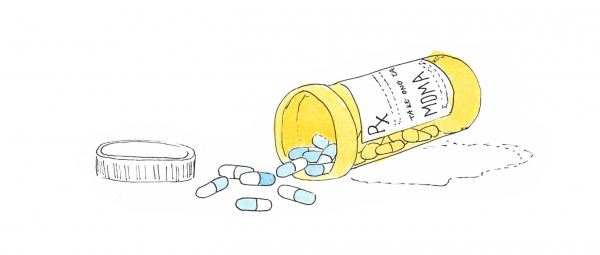Canadian medical law recognizes an individual’s right to bodily autonomy: They can choose their own birth control options, select treatment options based on personal views, and even refuse treatment entirely. Given this principle of bodily autonomy, it seems reasonable that patients should also have the right to access drugs of their choice—whether their doctor recommends their use or not. This is the argument that University of Richmond associate professor Jessica Flanigan presented to an audience of McGill students on Feb. 18 at her talk, “The Moral Case for Legalizing all Drugs.” While liberal university students may be particularly interested in the boundary-pushing topic, the argument in favour of legalization surpasses the appeal of raves and festivals; ultimately, the debate rests on a moral right to bodily autonomy.
Doctors are the gatekeepers of medicine, and they prescribe drugs based on their presumptions about the course of treatment that best promotes the patient’s overall wellbeing. Under this system, a student looking to access Adderall to help them study, for example, may be denied the drug if the doctor deems its use suboptimal for the student’s health. The issue with this assessment is that wellbeing comprises more than just physical health—it also encompasses a person’s mental state, which can be impacted by a variety of lifestyle factors such as a stressful schedule. In her talk, Flanigan emphasized that, in most cases, the person most qualified to judge a patient’s well-being needs is the patient themself. Mentally-sound persons have the insight to best evaluate how they are feeling and what they need, and allowing people to choose which drugs they use honours this fact.
While the government and medical institutions currently have authority over the substances people put into their bodies, Flanigan considers this approach paternalistic. She contends that, in a case where someone became extremely frustrated with their laptop, or any of their belongings, they would have the right to smash or otherwise wreck it. If people are allowed to ruin their property, there is no reason why they have any less right to harm themselves, as bodies are more fundamentally personal than property.
While bodily autonomy alone gives the argument drug legalization legitimacy, legalization gains even more moral merit because of the advantageous impact it would have for racialized and marginalized communities. Currently, the War on Drugs targets racialized groups. Incarceration rates for possession and distribution reveal that a black person is twice as likely as a white person to face minimum sentencing for the same crime. Legalizing drugs would prevent racial discrimination from furthering and prevent the incarcerations of millions of people of colour.
Skeptics of legalization may raise the concern that addicts would not be able to make a legitimately-autonomous decision when choosing to access drugs. But, Flanigan argues that addicts are more self-governing than many assume. Studies reveal that addicts undergoing withdrawal would forgo a fix given an incentive such as money. However, Flanigan’s argument seems to undermine the reality of mental and physical constraints addicts have on their self-control. One possible solution to this concern is implementing better systems of support for addicts, including a ‘blacklist’ that would allow them to consensually forego their right to access certain drugs.
The debate surrounding drug legalization has a specific pertinence for university students who find themselves experiencing the freedoms of adulthood for the first time and wanting to experiment. Drug use usually begins in a person’s late teenage years and early 20s. If drug use was legalized, university students may be among the demographic of highest use. Therefore, the legalization may seem especially appealing to students looking to experiment with substances. With that said, the debate over drug legalization has more important implications than just satiating youthful curiosity. Prohibiting access to drugs denies people their right to bodily autonomy, and legalization is necessary to honour humans’ right to choose what they do with their bodies.








